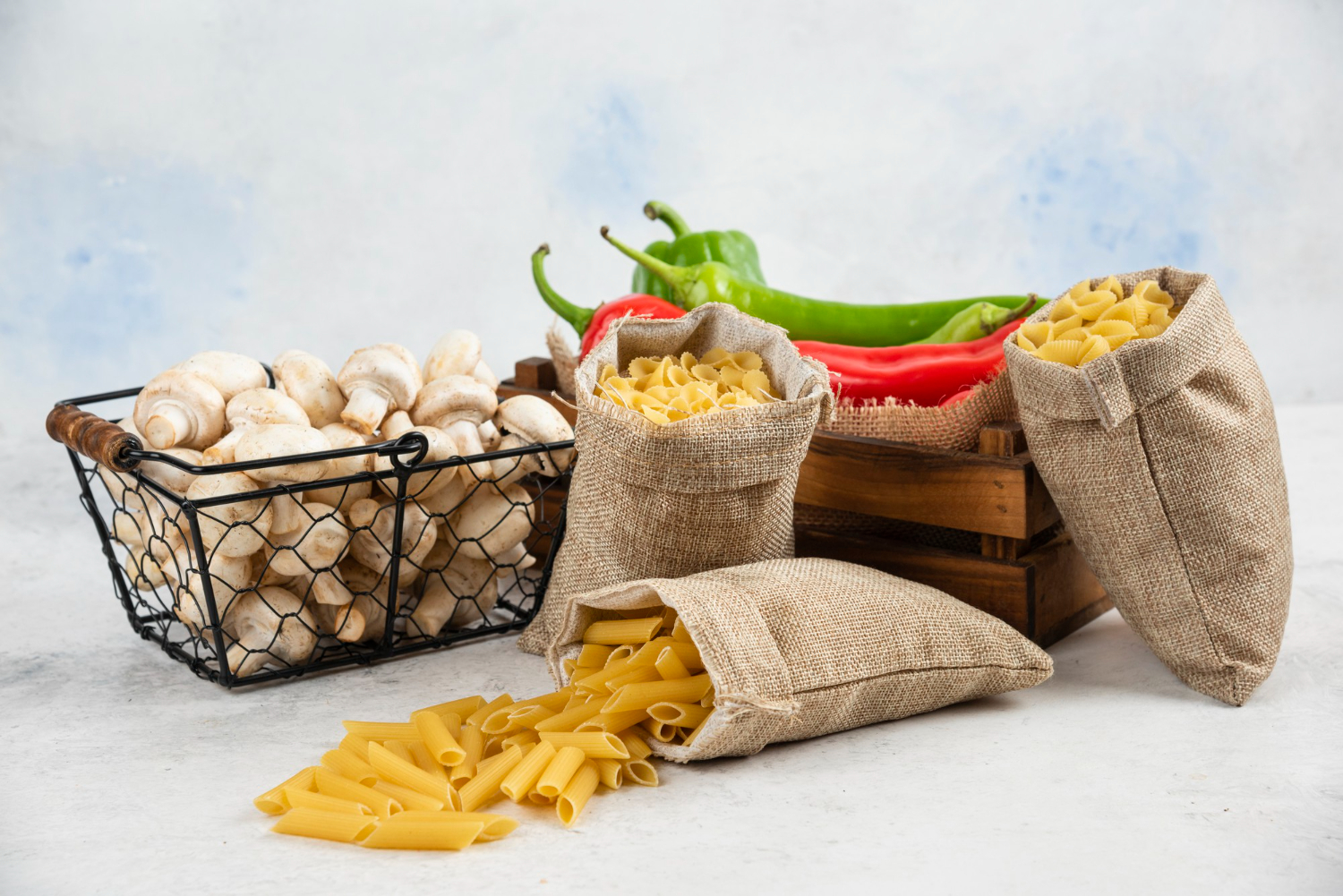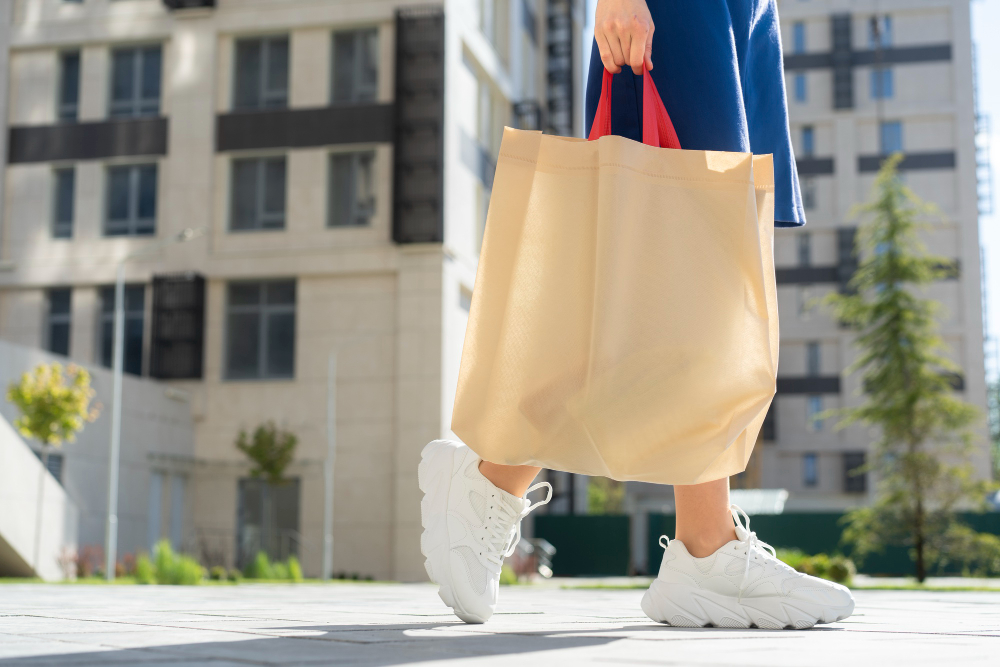In today’s world, reducing kitchen waste has become a significant priority. One of the most impactful ways to achieve this is by shopping in bulk using reusable containers. This comprehensive guide explores the ins and outs of Bulk Shopping for Minimal Packaging, offering practical tips, strategies, and the benefits of adopting this eco-friendly practice.
1. Introduction to Bulk Shopping for Minimal Packaging
Bulk shopping for minimal packaging is a game-changer for anyone seeking to reduce kitchen waste. Whether you are new to the concept or a seasoned zero-waste advocate, bulk shopping using reusable containers offers a sustainable, eco-friendly solution that minimizes packaging waste, especially plastic. By making the shift to Bulk Shopping for Minimal Packaging, you can play a significant role in reducing the environmental impact of plastic pollution.
Understanding the Concept of Bulk Shopping
Bulk shopping involves buying loose, unpackaged products in larger quantities. Unlike traditional shopping, where items come pre-packaged in plastic or boxes, bulk stores allow you to bring your own containers and fill them with the precise amounts you need.
How Minimal Packaging Reduces Waste
By eliminating the need for excessive packaging, particularly single-use plastics, bulk shopping significantly cuts down on waste, helping you lead a more sustainable lifestyle.
2. Why Bulk Shopping is Essential for a Zero-Waste Kitchen
A zero-waste kitchen is one that generates as little waste as possible. Bulk shopping plays a critical role in achieving this goal by reducing packaging and preventing food waste. When you shop in bulk, you can buy only what you need, which prevents over-purchasing and the need to throw away expired or unused food.
Link Between Bulk Shopping and Sustainability
Bulk Shopping for Minimal Packaging supports sustainable living by reducing the demand for plastic packaging. By choosing reusable containers, you contribute to minimizing the waste that ends up in landfills and oceans.
The Benefits of a Zero-Waste Kitchen
A zero-waste kitchen offers numerous benefits, including lower environmental impact, reduced clutter, and cost savings. Bulk shopping is an essential component of this strategy, making it easier to live sustainably.
3. Getting Started with Bulk Shopping: What You Need
Before diving into bulk shopping, it’s essential to have the right tools and mindset. Starting small and gradually integrating Bulk Shopping for Minimal Packaging into your routine is a great way to ease into this lifestyle change.
Essential Tools for Bulk Shopping
The most important tools for bulk shopping are reusable containers. Glass jars, stainless steel containers, and reusable cloth bags are excellent choices. These containers help you avoid single-use plastic packaging and make it easy to store your purchases.
Planning Your Bulk Shopping Trips
Planning is key to bulk shopping success. Make a list of the items you need and check which containers to bring based on the product types. For instance, use jars for liquids and grains, and cloth bags for produce.
4. Choosing the Right Reusable Containers
The success of your bulk shopping journey depends on selecting the right containers. Not all containers are created equal, so choosing ones that fit your lifestyle and preferences is crucial.
Glass Jars for Storage and Convenience
Glass jars are perfect for storing bulk items like grains, nuts, and dried fruits. They are durable, eco-friendly, and help preserve the freshness of your food. Additionally, you can easily see what’s inside.
Cloth Bags for Produce and Dry Goods
For items like flour, rice, and fresh produce, reusable cloth bags are a great option. They are lightweight, foldable, and take up minimal space when not in use.
5. How to Properly Clean and Maintain Your Containers
Once you’ve selected the right containers for your bulk shopping needs, maintaining their cleanliness is essential for food safety and hygiene.
Cleaning Glass Jars and Containers
Glass containers can be easily cleaned with hot, soapy water or run through the dishwasher. Ensure they are thoroughly dried before using them for bulk purchases to prevent mold or spoilage.
Caring for Reusable Cloth Bags
Wash reusable cloth bags regularly to maintain cleanliness. Choose bags made from organic cotton to ensure they are fully biodegradable and free from harmful chemicals.
6. Key Bulk Food Items to Buy
Some food items are perfectly suited for bulk shopping. Stocking up on these staples will help you create a more sustainable kitchen.
Grains, Rice, and Legumes
Grains, rice, and legumes are among the most popular items to buy in bulk. These dry goods are shelf-stable, easy to store, and a fundamental part of many diets.
Nuts, Seeds, and Dried Fruits
Nuts, seeds, and dried fruits are often available in bulk and can be stored for long periods. They’re excellent for snacking and adding to recipes, making them a valuable part of your bulk shopping list.
7. Navigating a Bulk Store: Tips for Beginners
Stepping into a bulk store for the first time can be overwhelming, but with a few tips, you’ll navigate the aisles like a pro.
Bring Your Containers
Always bring your containers with you. Many bulk stores have weighing stations where you can pre-weigh your containers before filling them. This ensures that you only pay for the product, not the container.
Check for Expiration Dates
Bulk stores often rotate their stock, so check the freshness of the items you’re buying. Many bulk stores also have guidelines on how long specific products will last.
8. Advantages of Buying in Bulk
Buying in bulk offers numerous benefits, from saving money to reducing waste. Let’s explore the top advantages of Bulk Shopping for Minimal Packaging.
Cost Savings
When you buy in bulk, you eliminate the cost of packaging, which often leads to significant savings. Additionally, purchasing larger quantities reduces the frequency of shopping trips.
Environmental Impact
Bulk shopping reduces the demand for single-use packaging, thereby reducing plastic waste and carbon emissions associated with packaging production and transportation.
9. Common Challenges of Bulk Shopping (and How to Overcome Them)
While bulk shopping offers many benefits, there are some challenges that beginners might face. Knowing how to overcome these challenges is key to success.
Lack of Access to Bulk Stores
In some areas, bulk stores may be limited. To overcome this, you can search for online bulk stores or farmers markets that offer package-free products.
Initial Investment in Reusable Containers
Buying reusable containers can feel like a significant upfront investment, but in the long run, it will save you money and reduce waste.
10. Reducing Packaging Waste Through Bulk Purchases
One of the most significant benefits of Bulk Shopping for Minimal Packaging is reducing the amount of packaging waste generated in your kitchen. By using your own containers, you contribute to a circular economy, where products are reused and repurposed, rather than disposed of after a single use.
Impact of Packaging Waste on the Environment
Single-use packaging, especially plastic, takes hundreds of years to decompose and is a leading contributor to pollution. Reducing packaging waste through bulk shopping is a tangible way to combat this issue.
Practical Steps to Reduce Packaging Waste
Start small by gradually replacing packaged products with bulk alternatives. Track your waste reduction efforts to stay motivated and measure your impact over time.
Key Point #1: Bulk shopping reduces plastic waste, minimizes food waste, and saves money.
11. Bulk Shopping at Farmers Markets and Local Stores
Farmers markets and local stores are excellent places to practice bulk shopping. Many local vendors offer produce, grains, and other items without excessive packaging.
Supporting Local Farmers
When you shop at farmers markets, you not only reduce packaging waste but also support local farmers and their sustainable practices.
Bulk Shopping at Specialty Stores
Many health food stores and specialty shops offer a wide selection of bulk items. Find stores in your area that encourage reusable containers and minimal packaging.
12. Sustainability Tips for Bulk Shopping
Sustainability is at the heart of bulk shopping. Here are a few tips to help you maximize your sustainability efforts while shopping in bulk.
Shop Locally
Whenever possible, shop at local markets to reduce the carbon footprint associated with transporting goods. Shopping locally also supports the local economy.
Avoid Plastic Bags
Even when shopping in bulk, avoid using plastic bags provided by stores. Always bring your reusable cloth bags and containers to minimize waste.
13. Saving Money with Bulk Purchases
Bulk shopping can save you significant money in the long term. Buying in larger quantities means you get more value for your money, especially with staple items like rice, beans, and pasta.
Bulk Buying for Budget Conscious Shoppers
For those on a budget, bulk shopping allows you to buy only what you need and avoid the markup on packaged goods. Additionally, it eliminates the need to purchase smaller quantities at higher prices.
Reduced Costs on Eco-Friendly Products
Many eco-friendly, organic products are available in bulk at lower prices than their pre-packaged counterparts, making sustainability more accessible.
14. Shopping in Bulk for Healthier Eating
Shopping in bulk can also lead to healthier eating habits. Without the temptation of processed and pre-packaged foods, you’re more likely to focus on whole, nutritious foods that benefit your health.
Stocking Up on Healthy Staples
When you shop in bulk, you can stock up on whole grains, nuts, seeds, and other nutrient-rich foods. This makes it easier to prepare healthy meals at home.
Avoiding Processed Foods
Most bulk stores do not carry heavily processed items. Instead, they focus on whole foods, making it easier for you to avoid additives and preservatives.
15. DIY Labels and Organizing Your Bulk Goods
Proper organization of your bulk purchases is essential for maximizing their longevity and reducing food waste.
Creating Labels for Your Containers
Use chalkboard labels or adhesive labels to clearly mark the contents of your containers, along with the purchase date and expiration date.
Organizing Your Pantry
Group similar items together in your pantry to make meal planning and preparation easier. Keep frequently used items like rice, pasta, and beans in the front for easy access.
16. Impact of Bulk Shopping on Reducing Plastic Waste
One of the biggest advantages of Bulk Shopping for Minimal Packaging is its role in reducing plastic waste. By choosing reusable containers, you eliminate the need for single-use plastics that contribute to environmental degradation.
Plastic-Free Shopping
With bulk shopping, you can opt for a plastic-free approach by using cloth bags, glass jars, and other eco-friendly alternatives.
Long-Term Impact of Reducing Plastic Waste
Over time, your commitment to bulk shopping will help decrease the demand for plastic products, leading to a cleaner, healthier planet.
Key Point #2: Bulk shopping encourages healthier eating habits and promotes environmental sustainability.
17. Eco-Friendly Storage Solutions for Bulk Purchases
After purchasing your bulk items, you need effective storage solutions that maintain freshness while reducing waste.
Mason Jars for Bulk Storage
Mason jars are a versatile and eco-friendly solution for storing bulk items. They keep food fresh, are easy to clean, and add a rustic charm to your kitchen.
Recycling Old Containers
Instead of buying new containers, consider reusing old jars, bottles, or tins for storing bulk items. This helps reduce the demand for new products and encourages a circular economy.
18. Using Bulk Shopping to Reduce Food Waste
One of the key benefits of bulk shopping is that it helps you buy only what you need, thereby reducing the amount of food waste generated in your kitchen.
Buy in Small Quantities
When trying out a new ingredient, buy small quantities in bulk to avoid wasting food if it doesn’t work out. This also helps prevent spoilage.
Use Leftovers Efficiently
Store leftover food in airtight containers and label them to avoid forgetting about them. Incorporating leftovers into new meals helps minimize food waste.
19. How Bulk Shopping Supports Local Farmers and Artisans
Bulk shopping is not only beneficial for the environment but also supports local farmers and artisans who often offer products with minimal packaging.
Supporting Small-Scale Producers
By buying in bulk from local markets, you support small-scale producers who prioritize sustainability and often offer fresher, higher-quality products.
Contributing to the Local Economy
When you purchase bulk items from local sources, you strengthen the local economy, creating a more resilient and sustainable community.
20. Final Thoughts: Building a Zero-Waste Kitchen Through Bulk Shopping
Bulk shopping for minimal packaging is a practical and effective way to reduce your kitchen waste and contribute to a healthier planet. By making small changes, such as using reusable containers and buying only what you need, you can minimize food and packaging waste in your kitchen.
Start Small and Stay Consistent
The journey to a zero-waste kitchen doesn’t happen overnight. Start small by gradually incorporating bulk shopping into your routine, and stay consistent in your efforts.
Inspiring Others to Reduce Waste
Share your bulk shopping journey with friends and family, inspiring others to take similar steps toward sustainability.
Key Point #3: By supporting local farmers and reducing food waste, bulk shopping strengthens communities and promotes sustainability.
Key Point #4: Bulk shopping supports local economies, reduces food waste, and leads to long-term savings.
Key Point #5: Incorporating reusable containers into bulk shopping leads to a more organized, sustainable kitchen.
FAQs on Bulk Shopping for Minimal Packaging
- What is bulk shopping for minimal packaging?
Bulk shopping for minimal packaging involves buying products in larger quantities without excessive packaging, using reusable containers. - What type of containers should I use for bulk shopping?
Glass jars, stainless steel containers, and reusable cloth bags are ideal for bulk shopping. - How can I start bulk shopping?
Begin by identifying local stores or markets that offer bulk options, and bring your own reusable containers. - Does bulk shopping save money?
Yes, buying in bulk often leads to cost savings as you eliminate packaging costs and purchase only what you need. - Is bulk shopping sustainable?
Bulk shopping is highly sustainable as it reduces plastic waste, supports local producers, and minimizes food waste. - Where can I bulk shop?
You can bulk shop at health food stores, farmers markets, co-ops, and some supermarkets that offer bulk sections. - Can bulk shopping reduce plastic use?
Absolutely! Bulk shopping significantly reduces the need for single-use plastic packaging. - What are the benefits of reusable containers?
Reusable containers help cut down on plastic waste, maintain food freshness, and offer long-term savings. - Is it difficult to switch to bulk shopping?
It may require some adjustments, but with planning and the right tools, bulk shopping becomes easier over time. - Can bulk shopping help reduce food waste?
Yes, buying only what you need helps prevent over-purchasing and food spoilage.


